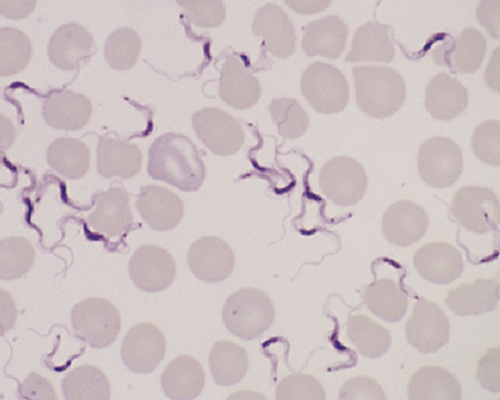African trypanosomiasis, a disease caused by the parasite Trypanosoma brucei gambiense (West African or Gambian trypanosomiasis) or T. brucei rhodesiense (East African or Rhodesian trypanosomiasis), transmitted to humans by the bite of the tsetse fly. African trypanosomiasis occurs only in the savannahs and woodlands of central and east Africa, where tsetse flies are found. The disease progresses through two phases: Stage 1 is marked by fever, lymphadenopathy, splenomegaly, and myocarditis. Stage 2 is marked by symptoms of central nervous system involvement, including lethargy, sleepiness, headache, convulsions, and coma. The disease is fatal unless treated, though it may be years before the patient reaches the neurological phase. Antimicrobial medications specific for the treatment of trypanosomiasis (suramin sodium, pentamidine isothionate, organic arsenicals difluoromethylorthinine, and eflornithine) are available in the United States only from the Centers for Disease Control and Prevention. Also called African sleeping sickness, sleeping sickness. Kinds include Gambian trypanosomiasis, Rhodesian trypanosomiasis. See also trypanosomiasis.

